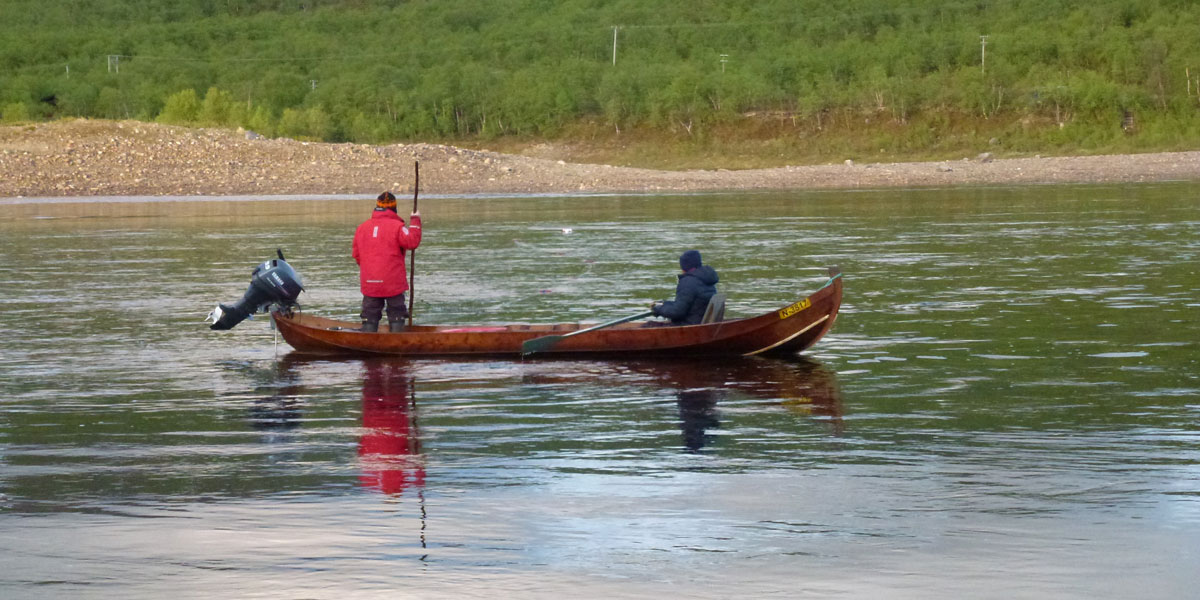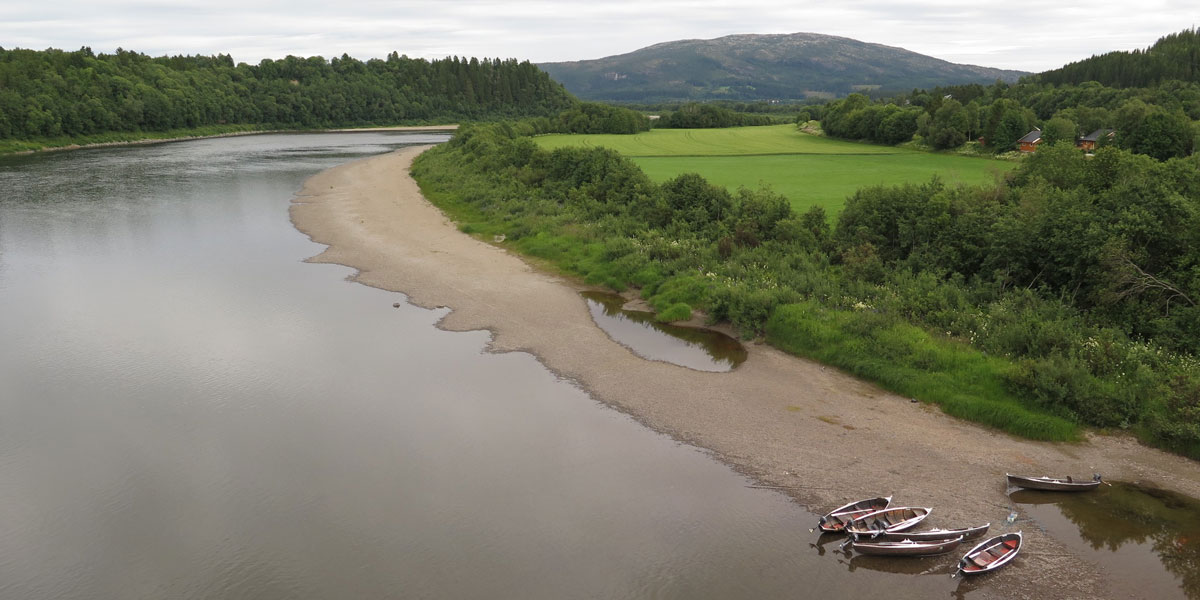SALCUL: Bridging diverse knowledge for improved salmon management: Linking cultural and biophysical dimensions
SALCUL is a multidisciplinary research initiative, consisting of indigenous and local knowledge holders, social scientists, and natural scientists.
The main objectives of the project have been to 1) Investigate salmon as a biocultural phenomenon, to gain insights in different ways of knowing and valuing salmon, and 2) to facilitate more legitimate and robust processes of Norwegian salmon management through respectful collaboration between holders of different knowledges.
The local anchoring of the SALCUL project has been the Deatnu-Tana River and Fjord in Sápmi, Northern Norway, and the Namsen River and Fjord in Namdalen, Central Norway. These rivers are among the most productive Atlantic salmon rivers in Norway, as well as internationally. They are further included in the National Salmon Fjords and Rivers scheme for protection of Norway's most important salmon populations. In both areas, the salmon has been of fundamental importance for the first people to make a living in these river valleys.
 River Deatnu-Tana. Photo: Solveig Joks.
River Deatnu-Tana. Photo: Solveig Joks.
Fieldwork with participant observation and in-depth interviews in the two case areas have made visible the importance of salmon for peoples' quality of life, identity, sense of place, social relationships, economy, physical and mental health, meaningful meals and for the possibility of acquiring and passing on a salmon knowledge tradition. The project has further shown what indigenous and local salmon related knowledge consists of and made visible what is at stake for those who live with, of and for Atlantic salmon on a daily basis, being the ones most affected by the authorities' management measures. While exemplifying bases for occasional large salmon management conflicts, SALCUL further reveals how increased understanding of various actors' diverse relationship to and valuations of salmon, as well as their different action space, may facilitate dialogue and collaboration.

River Namsen. Photo: Eva B. Thorstad / NINA.
Through the SALCUL project, international recommendations on the inclusion of local and indigenous knowledge and different values and ways of appreciating nature have been tested in a Norwegian management context. The project has facilitated repeated meetings between key actors involved in Norwegian salmon management, inclusive of knowledge producers and management representatives at various levels, as well as fishermen and business actors involved in – or seeking involvement in – processes resulting in management measures affecting their daily lives. The project has revealed challenges associated with the Norwegian sector division and the Ministry of Climate and Environment's area of responsibility related to wild Atlantic salmon, the complexity of Norwegian salmon management, the Environment Agency's room for maneuver, and the obstacles and opportunities for including local and indigenous knowledge in Norway’s current management model. While indigenous and local knowledge play central roles at the local level of Norwegian salmon management, within local management processes and in various research projects, the project has revealed a lack of structures for including indigenous and local knowledge also at the national level. Here, SALCUL’s international network collaboration has contributed examples of involvement of local and indigenous people in knowledge production and management of salmon in the north, of relevance to a Norwegian context.
By emphasizing the complementarity of knowledge systems, SALCUL has aimed for a more complex understandings of the challenges and opportunities we face in caring for wild Atlantic salmon. In this way, the project has facilitated increased knowledge exchange and collaboration within Norwegian salmon management and knowledge production, contributing one step towards a more holistic approach to sustainable wild salmon management.